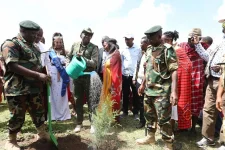Kenya has taken strong steps to include minority and marginalized groups in national life. The government wants to meet international standards from the United Nations that protect minorities' rights to practice their religion, enjoy their culture, and speak their language without discrimination.
The roots of marginalization in Kenya go back to colonial times when certain areas received investment while others were ignored. After independence, problems continued through centralized government control that favored larger ethnic groups and never properly fixed land ownership issues. These patterns left many communities excluded from economic opportunities and decision-making roles for decades.
President Ruto created the Minorities and Marginalized Affairs Unit (Mmau) in 2023 to address these long-standing problems. This office develops policies to protect vulnerable communities, maps their locations across Kenya, and ensures they benefit from government programs. The unit has already helped several stateless communities, including the Makonde, Shona, Tswaka Wakivundi, and Nubians, gain official recognition as Kenyan tribes.
Other achievements include adding minority data to government job portals so these communities can compete fairly for positions. New administrative units like the Makutani subcounty in Baringo have been created to give the Ilchamus people better representation. The government has also appointed people from minority backgrounds to Cabinet Secretary and Principal Secretary positions.
Kenya has passed several laws to protect minority rights, including the County Governments Act, Constituency Development Fund Act, and Climate Change Act. These ensure marginalized communities benefit from national resources and development funds. The country also requires Free, Prior, and Informed Consent from communities before projects affecting their livelihoods can proceed.
Looking ahead, Kenya faces challenges in making sure marginalized communities benefit from new economic opportunities in oil, gas, minerals, and marine resources. The government needs better policies for fair benefit-sharing, land rights protection, and including Indigenous voices in decision-making. Working with civil society organizations and the communities themselves will be essential to create lasting positive change beyond symbolic gestures.
The roots of marginalization in Kenya go back to colonial times when certain areas received investment while others were ignored. After independence, problems continued through centralized government control that favored larger ethnic groups and never properly fixed land ownership issues. These patterns left many communities excluded from economic opportunities and decision-making roles for decades.
President Ruto created the Minorities and Marginalized Affairs Unit (Mmau) in 2023 to address these long-standing problems. This office develops policies to protect vulnerable communities, maps their locations across Kenya, and ensures they benefit from government programs. The unit has already helped several stateless communities, including the Makonde, Shona, Tswaka Wakivundi, and Nubians, gain official recognition as Kenyan tribes.
Other achievements include adding minority data to government job portals so these communities can compete fairly for positions. New administrative units like the Makutani subcounty in Baringo have been created to give the Ilchamus people better representation. The government has also appointed people from minority backgrounds to Cabinet Secretary and Principal Secretary positions.
Kenya has passed several laws to protect minority rights, including the County Governments Act, Constituency Development Fund Act, and Climate Change Act. These ensure marginalized communities benefit from national resources and development funds. The country also requires Free, Prior, and Informed Consent from communities before projects affecting their livelihoods can proceed.
Looking ahead, Kenya faces challenges in making sure marginalized communities benefit from new economic opportunities in oil, gas, minerals, and marine resources. The government needs better policies for fair benefit-sharing, land rights protection, and including Indigenous voices in decision-making. Working with civil society organizations and the communities themselves will be essential to create lasting positive change beyond symbolic gestures.












